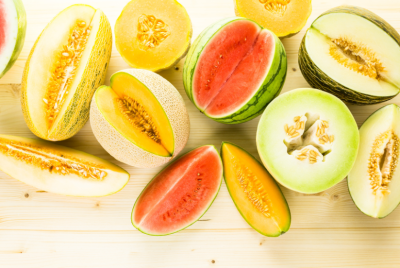Fructose Intolerance: Comprehensive Guide
Introduction
Welcome to a world of sweetness, where fruits are nature’s candy and sugar-laden treats bring delight to our taste buds. But for some, this sweet paradise can quickly turn into a digestive nightmare. Enter “Fructose Intolerance,” a condition that affects the body’s ability to handle fructose, the natural sugar found in fruits and added sugars. In this guide, we’ll dive deep into the realm of fructose intolerance, exploring its symptoms, causes, diagnosis, and most importantly, how to manage it while still satisfying your sweet cravings.
Fructose Intolerance: The Bitter Side of Sweetness
Fructose intolerance, also known as dietary fructose intolerance or fructose malabsorption, is a digestive disorder characterized by the body’s inability to adequately absorb fructose. It occurs when the small intestine fails to absorb fructose properly, leading to a variety of uncomfortable symptoms. This intolerance is different from hereditary fructose intolerance, a rare genetic disorder caused by the deficiency of an enzyme called aldolase B.
What Causes Fructose Intolerance?
The primary culprit behind fructose intolerance lies in the way our body processes fructose. When we consume fructose, it needs to be absorbed in the small intestine before it can be used for energy. However, in individuals with fructose intolerance, the absorption process is disrupted. This can occur due to various reasons, including:
- Lack of Transporters: Fructose requires specific transporters to enter the bloodstream. Fructose intolerance can result from a deficiency in these transporters.
- Imbalance with Glucose: Absorption of fructose is more efficient when consumed in combination with glucose, as found in table sugar (sucrose). Fructose intolerance can occur when there is an imbalance between fructose and glucose intake.
- Gut Bacteria Fermentation: In some cases, the unabsorbed fructose reaches the colon, where gut bacteria ferment it, leading to the production of gas and causing bloating and discomfort.
- Small Intestine Overload: Consuming a large amount of fructose at once can overwhelm the small intestine’s absorption capacity, triggering symptoms of intolerance.
Spotting the Symptoms
Are you wondering if you might have fructose intolerance? Keep an eye out for these common symptoms:
- Bloating: Feel like a balloon after eating fructose-rich foods? Bloating is a prevalent symptom of fructose intolerance due to the excess gas produced during fermentation.
- Abdominal Pain: Experience sharp or cramp-like pains in your abdomen after eating fruits, sweeteners, or high-fructose foods? Fructose intolerance might be the cause.
- Diarrhea or Constipation: The imbalance caused by fructose intolerance can lead to changes in bowel movements, ranging from diarrhea to constipation.
- Nausea and Vomiting: Fructose intolerance can trigger feelings of nausea and even lead to vomiting in severe cases.
- Excessive Gas: Uncomfortable gas and flatulence are common signs of fructose intolerance.
- Fatigue: Some individuals may experience fatigue or weakness as the body struggles to process fructose.
Diagnosing Fructose Intolerance
If you suspect fructose intolerance is responsible for your digestive woes, it’s essential to seek proper diagnosis and medical advice. While self-diagnosing is never recommended, there are some common methods used to diagnose fructose intolerance:
- Elimination Diet: A common approach involves eliminating high-fructose foods from your diet for a period and then gradually reintroducing them while monitoring symptoms.
- Hydrogen Breath Test: This non-invasive test measures the amount of hydrogen in your breath after consuming a fructose solution. Elevated hydrogen levels can indicate fructose malabsorption.
- Fructose Challenge Test: Conducted under medical supervision, this test involves consuming a controlled amount of fructose to observe your body’s response.
Managing Fructose Intolerance: Finding Balance in Sweetness
The good news is that fructose intolerance doesn’t mean bidding farewell to all things sweet. With the right approach and some dietary adjustments, you can still enjoy a variety of foods without triggering uncomfortable symptoms. Here’s how:
- Portion Control: While large amounts of fructose can overwhelm your system, smaller portions may be better tolerated.
- Balance with Glucose: As mentioned earlier, combining fructose with glucose (e.g., sucrose) can improve absorption. Opt for foods with an equal glucose-fructose ratio.
- Choose Low-Fructose Foods: Not all fruits have the same fructose content. Opt for low-fructose options like berries, kiwi, and citrus fruits.
- Avoid High-Fructose Sweeteners: High-fructose corn syrup and agave nectar are common sweeteners to steer clear of.
- Mindful Eating: Pay attention to how your body responds to different foods and identify your triggers.
- Enzyme Supplements: Some individuals find relief by taking fructose-digesting enzyme supplements before consuming high-fructose foods.
- Read Labels: Be a diligent label reader, as many processed foods contain hidden fructose.
FAQs about Fructose Intolerance
- Is fructose intolerance the same as a fructose allergy?No, fructose intolerance and fructose allergy are different conditions. Fructose intolerance relates to the body’s inability toabsorb fructose properly, while fructose allergy involves an immune system response to fructose, which is rare.
- Can fructose intolerance develop later in life?Yes, fructose intolerance can develop at any age. Some people may not experience symptoms until later in life when their fructose intake increases.
- Can I outgrow fructose intolerance?Fructose intolerance is usually a lifelong condition, but its symptoms can be managed effectively through dietary changes and other measures.
- Can I consume artificial sweeteners if I have fructose intolerance?Yes, artificial sweeteners like sucralose or aspartame are generally safe for individuals with fructose intolerance since they do not contain fructose.
- Is fructose intolerance the same as lactose intolerance?No, these are different conditions. Fructose intolerance involves issues with fructose absorption, while lactose intolerance is the inability to digest lactose, a sugar found in milk.
- Can stress worsen fructose intolerance symptoms?Stress can exacerbate digestive symptoms, including those related to fructose intolerance. Managing stress levels can be beneficial for overall digestive health.
Conclusion
Fructose intolerance might cast a shadow on your sweet indulgences, but with the right knowledge and adjustments, you can still savor the sweetness of life without discomfort. Understanding your body’s response to fructose and making informed choices will empower you to navigate through the delectable world of fruits and sugars while keeping digestive issues at bay. So, the next time you enjoy a juicy fruit or a delightful dessert, remember to strike a harmonious balance between the sweet side and its not-so-sweet secret—fructose intolerance.




